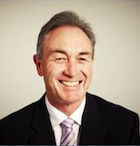Whether you think that radio is over regulated or not regulated enough, the people who enforce the rules, The ACMA, want to hear from you. No kidding, they want your opinion on a range of topics such as…
• Decency: How do you define it and where do you draw the line?
• Getting the facts right: accuracy, how important is it? Is radio about information or entertainment?
• Fairness, balance and significant viewpoints . Is that what listeners really want?
• Advertising and the changing world . Product placement, integration and disclosure.
You can have your say on all of the above and more during the month of June when the Australian Communications and Media Authority host the Citizens Conversations series at their Pyrmont offices in Sydney.
The first two “conversations” are just over a week away on Thursday 6 June.
8.30 am – 1.00 pm: Classification and the time-shifting audience
12.30 pm – 5.00 pm: Decency
There’s no cost to attend. But you must register. And just to show how much The ACMA value your input, if you come to an early session they’ll shout you lunch. And if you come to an afternoon session they’ll shout you drinks.
For the full agenda, session dates, times and online registration go here.
Still not convinced? Read what ACMA Chairman Chris Chapman has to say below.
To read Peter Saxon’s recent interview with Mr Chapman click here.
Seriously, here’s your chance to help shape the future of radio regulation, codes and standards. Register now and have your say.
As a participant at one or more of these forums you can discuss the issues you find importnat and ask the hard questions of radio and TV industry figures, commentators and experts like Gretel Killeen, Chris Berg, Waleed Aly, Jonathan Holmes, John Stanley, Julian Disney and Jane Caro.
Tuning into the community—broadcasting codes under review
By Chris Chapman, ACMA Chairman
 Whether you’re a couch potato, a dedicated talkback listener, an occasional fan of reality TV or an early riser who loves breakfast television or radio, you’re one of millions of Australians who actually are participating in broadcast media. Most of us relax in front of the television or tune in to hear our favourite presenters nearly every day. And indeed the news, views and entertainment on our airwaves and screens can be an important influence in our individual and collective lives.
Whether you’re a couch potato, a dedicated talkback listener, an occasional fan of reality TV or an early riser who loves breakfast television or radio, you’re one of millions of Australians who actually are participating in broadcast media. Most of us relax in front of the television or tune in to hear our favourite presenters nearly every day. And indeed the news, views and entertainment on our airwaves and screens can be an important influence in our individual and collective lives.
But are the formal broadcasting codes that shape the boundaries of media keeping up with rapid changes in technology, social trends and demography, and community expectations? We want to hear your views, so next month we’re holding a series of public forums called Citizen conversations to explore this question. We want you, the community, to participate.
We’re exploring a wide range of questions. Issues like privacy, accuracy, decency, the presentation of significant viewpoints and balance have been acknowledged and debated since the beginning of the broadcasting era. But how are these concepts placed now—and do the formal practice codes that frame them reflect today’s expectations and contemporary standards?
It’s broadly accepted that the internet and the fast-moving social media are challenging traditional broadcasting advertising models and programs, driving different news cycles and generally pushing broadcasters to adapt to meet audience and business needs.
This suggests new issues to consider. For example, it seems to a casual observer that product placement is now much more widespread in programs. Is that observation correct and, if it is, should this be disclosed? Is there enough transparency?
In a world where anyone can blog, does this change how we feel about the real or perceived influence of high-rating radio announcers—and, in any event, do they really need to be fair and balanced? Should the principle of fairness apply to opinions?
And what about the impact of citizen journalism and ‘instant media’ like Twitter and Instagram on the traditional notions of accuracy in broadcast news reports? How is that phenomena to be accommodated?
The question we’re asking is whether the regulation is keeping up with these changes. In this new media landscape, can the codes be better targeted? Are there are just so many code prescriptions that it’s difficult to weigh through what’s important and what’s noise?
Well, maybe it’s time to go back to ‘first principles’ to consider these issues and what constraints should or need to apply. We’re holding the Contemporary community safeguards inquiry to ask some more fundamental questions about what the safeguards should be, given where we’re at.
Community safeguards are protections that society deems important. In the broadcasting context, they help industry to navigate the complexities of communicating in the digital age by setting the boundaries around what the community will and will not accept, and what they do and do not need. The ACMA continues to work to the assumption that community safeguards change over time to reflect community expectations, technological developments and the changing ways we consume our media.
These issues and more are being examined in the Contemporary community safeguards inquiry. We’re holding this inquiry to explore and re-validate (or otherwise) the core principles that should guide the content of the broadcasting codes of practice. These codes are developed by industry in the first instance and the ACMA has to register these codes if we think they contain those appropriate community safeguards. So the various sectors within the industry need to refresh their codes to reflect social values and expectations.
As part of the inquiry, we are holding six separate public forums during June at our Pyrmont offices, exploring these issues. We want to hear from the most important sector of all—the community (the viewers and listeners). What you think about the broadcasting codes will help us to properly guide and inform industry on those guiding principles.
Participants at these forums can discuss the most important issues and ask the hard questions of radio and TV industry figures, commentators and experts like Gretel Killeen, Chris Berg, Waleed Aly, Jonathan Holmes, John Stanley, Julian Disney, Jane Caro and many more, as well as ACMA staff who operate in this space.
Dates, times and agendas are now available, so register to secure your place at this important event. There is no charge to attend.
We’d love to see you in Sydney or join us online for this important conversation. And make sure you keep up to date with the progress of the inquiry by checking out our special website.
How in tune is the broadcast media with community views and expectations? Let’s turn up the volume and find out from you.

